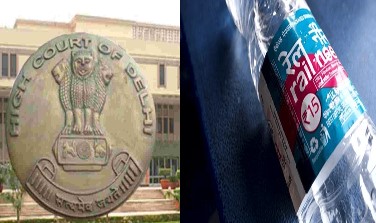
The Delhi High Court has recently refused to quash an FIR filed in 2015 against two catering companies and an individual in Rail Neer Scam.
The accusation involves allegedly causing a loss of Rs 19.5 crore to the Railways by selling cheaper packaged water on Rajdhani and Shatabdi trains instead of Rail Neer.
The high court dismissed 3 petitions filed by the accused parties seeking the quashing of the FIR and the setting aside of subsequent proceedings.
Justice Yogesh Khanna, presiding over the case, cited overall submissions and relevant case laws to conclude that no case had been made for quashing the FIR at this stage.
The CBI alleged that during the period of 2013-2014, the catering licensees deliberately supplied packaged drinking water other than Rail Neer on Rajdhani and Shatabdi trains, despite the availability of Rail Neer.
The high court stated that, “In view of overall submissions and case laws…, no case is made out for quashing of FIR at this stage. Accordingly, the petitions stand dismissed.”
It was further alleged that by not utilizing Rail Neer, the licensees caused a loss of approximately Rs 19.55 crore to the government exchequer and obtained undue pecuniary gain by claiming reimbursement for Rail Neer.
The court clarified that the case revolves around the loss incurred by the Railways due to the reimbursement claimed by the catering companies for the unsold Rail Neer, which is the packaged water supplied by the railway PSU IRCTC. The court also took note of the allegations made in the charge sheet, stating that the accused could not have used alternative packaged drinking water without prior permission from the railway authorities.
Additionally, the court highlighted that the petitioner companies had been using bottles priced at Rs 4.66 to Rs 8.16 per bottle while claiming reimbursement at the rate of Rs 15 per bottle, which is the price of Rail Neer.
The court emphasized the letters from the Central Vigilance Commission (CVC) and the Ministry of Railways, which noted irregularities in allowing the supply of alternative packaged drinking water and the resulting loss of approximately Rs 19.50 crore to the Railways. The court underscored that no notice was given to the Railways regarding the shortfall in the supply of bottles.
Furthermore, the high court acknowledged that the trial court previously considered the Railways’ lack of punitive action in this matter, without elaborating on the reasons behind it.




